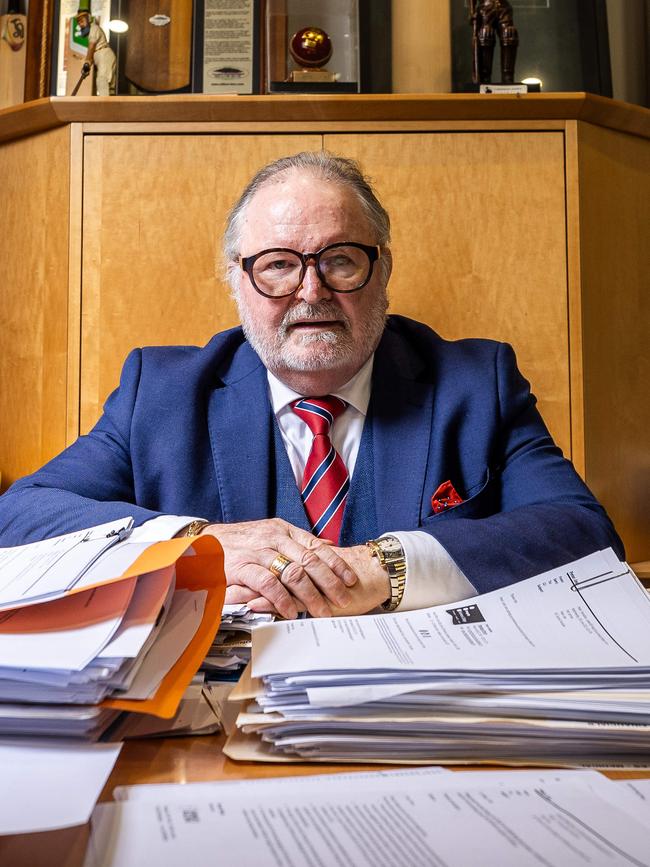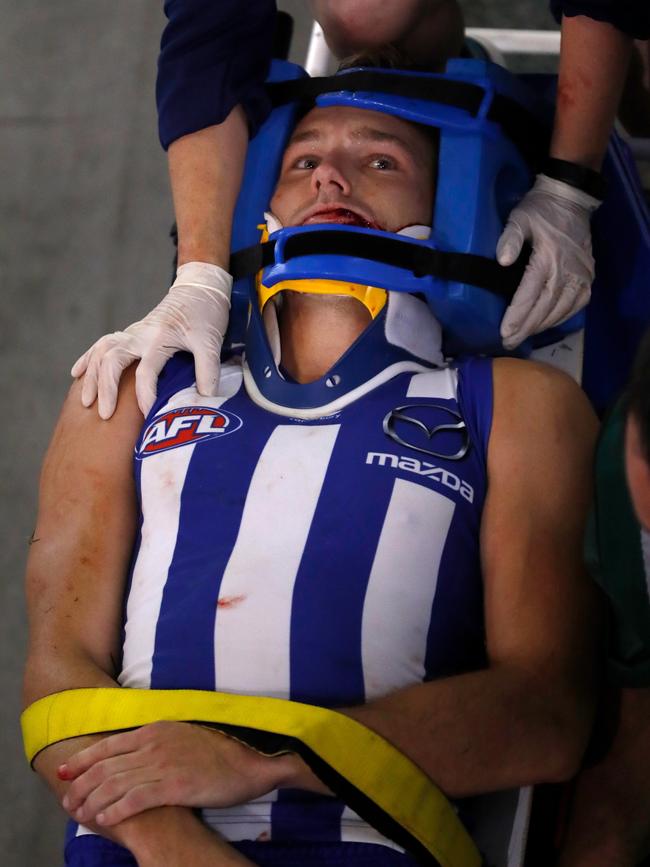AFL concussion class action: Governing body slammed for blaming players, clubs
The AFL will argue clubs and player are responsible for concussion as it prepares to defend a major class action by 100 players. A leading campaigner has labelled the defence “frightening in the extreme”.

AFL
Don't miss out on the headlines from AFL. Followed categories will be added to My News.
Campaigner Peter Jess has lashed the AFL for laying blame on the clubs and players for brain trauma suffered because of concussion.
The AFL is defending a major class action by 100 players, led by Geelong favourite Max Rooke, and claims clubs and “players themselves” were responsible for footballers’ health and wellbeing, and that players knew the risks of injuries before taking the field.
“It’s unbelievably insulting to every player who has taken the field,’’ Jess said.
“The AFL is blaming the players for the concussion factory which now exists.
“How do you tell a young draftee with little or no life skills that the employment he or she is about to undertake is likely to lead to brain damage and it is their fault as, the AFL says, any reasonable person would know.
“It’s frightening in the extreme.’’
Several former players contacted Jess on Sunday expressing disbelief at the AFL’s argument, including Carlton great Greg Williams and former Bulldog and Bomber Alan Stoneham.
In documents filed in the Victorian Supreme Court as part of the class action, the league has revealed it will argue “the clubs, as the AFL players’ employers, along with the AFL players themselves”, are primarily responsible for players’ health and wellbeing.

As revealed in this masthead, the league will also argue the players knew, and accepted, the risks inherent in playing a professional contact sport.
Jess, who has called for concussion policies to be reviewed since 2008, said the league was not accepting responsibility as the custodians of the game and the rule makers.
He said that under the OH&S Act in Victoria, the venue or stadium controller is the employer and responsible for the health and safety of the players, as a joint responsibility with the club on match day.
“The employer must, where practical, eliminate known risks or mitigate them if they cannot be eliminated on match day,’’ Jess said.
“That is the AFL’s responsibility.
“The club follows the AFL guidelines and rules, the players follow medical advice and the AFL rules.
“To characterise the primary responsibility for the health and wellbeing of players to the clubs and players themselves is misleading and inaccurate.
“To further assert that the players were able to exercise their own judgement and free will in deciding whether and how to train and play AFL, and follow medical advice having regard to the risk of traumatic injury, is absurd at every level.”


Jess said that until recently the AFL and club doctors did not accept causation of CTE (Chronic traumatic encephalopathy) through repeated traumas.
“In fact the message to players was that CTE did not exist in the AFL and concussion did not create permanent structural or functional impairment to the brain,’’ Jess said.
“Players did not understand the issues given the contradictory advice from the AFL, the doctors and in fact the AFLPA.
“This argument from the AFL is a continuation of the blame game to the detriment of all involved which are the players, the wives and partners and the children.
“This nonsense must stop.
“The AFL commissioners must stand aside.
“The AFL executive must be held responsible for the decisions and actions that flow from this.’’
The class action alleges the AFL failed to implement reasonable concussion protocols for players and clubs.
The AFL has said it made at least 30 rule changes to game since 2000 in a bid to reduce the risk of players suffering concussions.
More Coverage
Originally published as AFL concussion class action: Governing body slammed for blaming players, clubs





